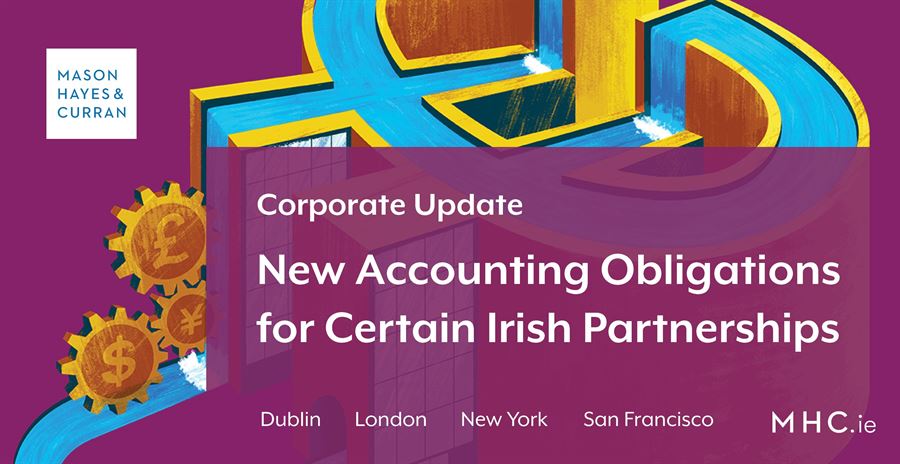
New regulations, the European Union (Qualifying Partnerships: Accounting and Auditing) Regulations 2019[1], have come into operation for financial years beginning on or after 1 January 2020 and impose new filing obligations on certain Irish partnerships and limited partnerships.
Under previous Regulations, enacted in 1993 and now superseded by the 2019 Partnership Regulations, all partnerships, where all the members of the partnership which have unlimited liability are themselves limited liability companies or their equivalent, are required to file financial statements in the Companies Registration Office (CRO).
The reasoning for this obligation was that such partnerships have in fact limited liability. Any partnerships, with at least one member being a non-EU unlimited liability company, fell outside the definition under the 1993 Regulations even though the ultimate members of the partnership may have had limited liability. The type of partnership caught under the 2019 Regulations is defined as a “qualifying partnership”, which is very detailed and the regulators are broadening the scope of partnerships, including limited partnerships, caught under the 2019 Regulations to ensure they capture all types of partnerships with corporate members where all the ultimate corporate members have limited liability.
Scope of the 2019 Regulations
The 2019 Partnership Regulations provides that Part 6 of the Companies Act 2014, which contains all the laws applicable to companies on financial statements, annual returns and audits, will apply to these qualifying partnerships as if they were a company formed and registered under the 2014 Act.
Other items to note are these:
-
Part 6 of the 2014 Act will not apply to qualifying partnerships that are either a credit institution or an insurance undertaking.
-
If a qualifying partnership has debentures admitted to trading on a regulated market then it must prepare a corporate governance statement
-
Part 26 of the 2014 Act will apply to qualifying partnerships. Part 26 imposes an obligation on qualifying partnerships involved in the mining, extractive or logging industries to prepare an annual report on any payments of €100,000 or more they have made to governments of any countries, under a number of different headings. The annual reports must be filed in the CRO, and will therefore be publicly available.
-
The European Union (Disclosure of Non-Financial and Diversity Information by certain large undertakings and groups) Regulations 2017[2] (the 2017 Regulations) will be applicable to any qualifying partnerships that fall within the scope.
Conclusion
If you have partnerships with complex corporate structures in place in your organisation where the ultimate beneficial owners retain limited liability and these partnerships do not prepare or file financial statements in the CRO, then you should consider further whether the 2019 Partnership Regulations apply to them.
If you have a partnership in a structure and it is already a partnership to which the 1993 Regulations and financial statements are prepared and filed annually, then you should consider whether any of the following obligations apply to the partnership:
-
If it has debentures admitted to trading then it must prepare a corporate governance statement.
-
If it is involved in the mining, extractive or logging industries and meets the other criteria set out in Part 26 and then it must comply with Part 26 of the 2014 Act.
-
If it meets the criteria under the 2017 Regulations then it must:
- Include in its partners’ report a statement containing certain non-financial information (relating to environmental and social matters and employee matters, respect for human rights and bribery and corruption), and
- Include in the partnership’s corporate governance statement a diversity report
If you would like assistance in understanding any new obligations under the 2019 Partnership Regulations, contact a member of our Corporate team.
This article was contributed by Karen Dunleavy, Corporate Knowledge Lawyer.
The content of this article is provided for information purposes only and does not constitute legal or other advice.
Share this:





